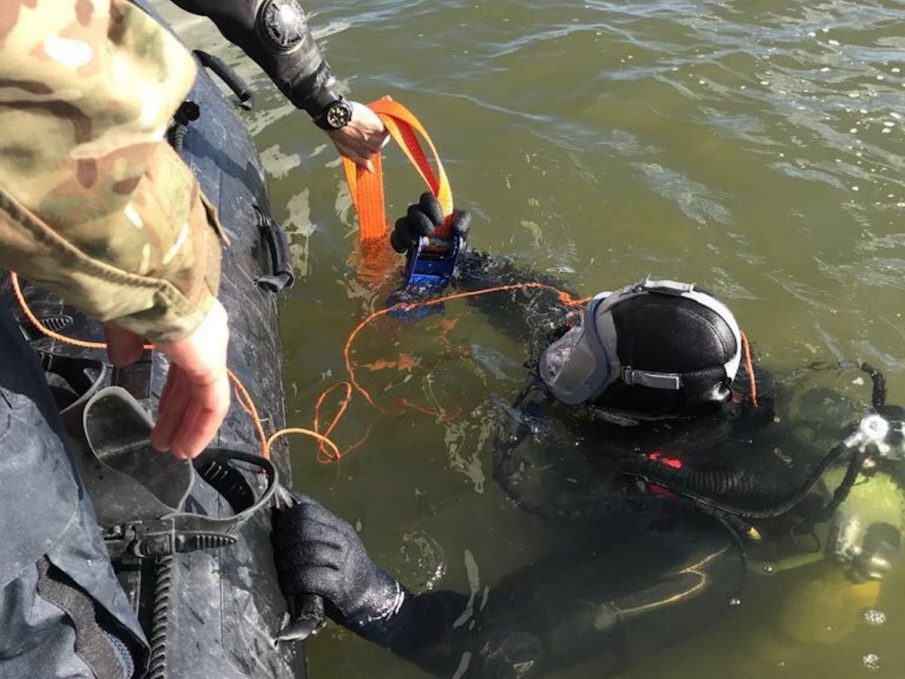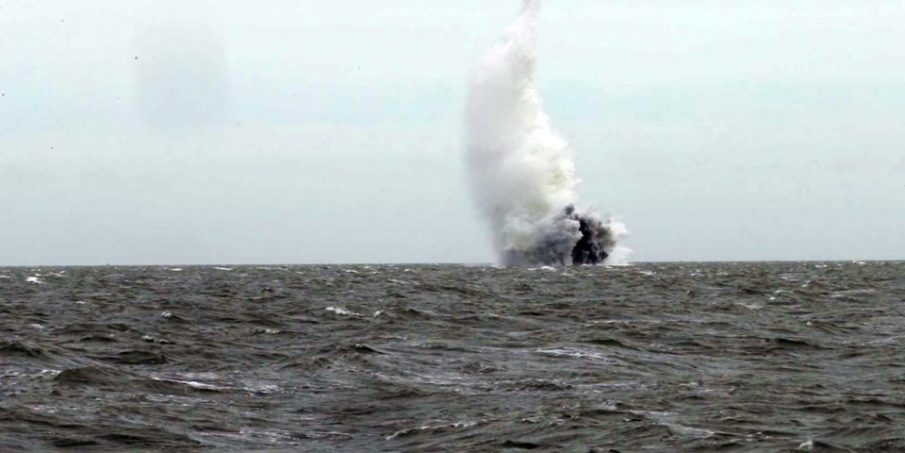Bomb disposal experts from the Royal Navy transported a large, unexploded bomb down the River Thames on Monday night, then detonated it at sea.
Airport security the world over has changed dramatically in the years since the tragic events of September 11th, 2001, particularly in nations with close ties to the United States like the UK. On Sunday, however, as the London City Airport was shut down and evacuated following the discovery of a 500-kilogram (more than 1,100 pound) bomb found near the runway, the threat wasn’t terrorism, a lone wolf or a disgruntled employee… it was our own history.
“Following the discovery of a World War Two ordnance in King George V Dock as part of planned development works, a 214m exclusion zone has been implemented as a precaution by the Met Police. As a result, London City Airport is currently closed.” Officials from the London City Airport posted on Twitter.
The bomb, measuring nearly five feet long, was found buried in the dense silt abutting the runway, where it had laid dormant since it was placed there during the air raid campaigns of World War II. It is likely that the bomb may have been dropped by German aircraft attacking what was once a London industrial center that stood where the airport is now located.

Once the airport was cleared and local residents had been evacuated on Monday night, the bomb disposal team dug out the silt surrounding the ordnance, then used a “lifting bag” to remove it from the ground. From there, they loaded it onto what appears to be a rigid hull inflatable boat for transport some 40 miles down the Thames under cover of darkness, though it seems likely that the nighttime operations was more a matter of expediting its transport away from the populous, than it was covert in nature.
The Royal Navy had intended to detonate the bomb at sea on Tuesday, but poor weather conditions forced them to postpone its disposal. Cmdr. Del McKnight of the Royal Navy’s fleet diving squadron said in a statement on Tuesday:
“The bomb presents no risk to the public in its current location, so we will leave it where it currently sits until tomorrow.”
The airport closure resulted in the cancellation of hundreds of flights, affecting more than 16,000 people, as the bomb disposal experts worked to remove the ordnance. Robert Sinclair, CEO of the airport, apologized and said: “The airport is cooperating fully with the Met Police and Royal Navy and working hard to safely remove the device and resolve the situation as quickly as possible.”
The bomb had explosives attached to it and was then detonated by the Royal Navy out at sea. Watch the video of the detonation below:
Watch @RoyalNavy bomb disposal experts blow up the World War II bomb that shut down London City Airport earlier this week (story: https://t.co/GGY2f7qqxp) pic.twitter.com/cs8TJIc2um
— Alexandra Ma (@AlexandraMa15) February 14, 2018
Images courtesy of the UK Ministry of Defense










COMMENTS